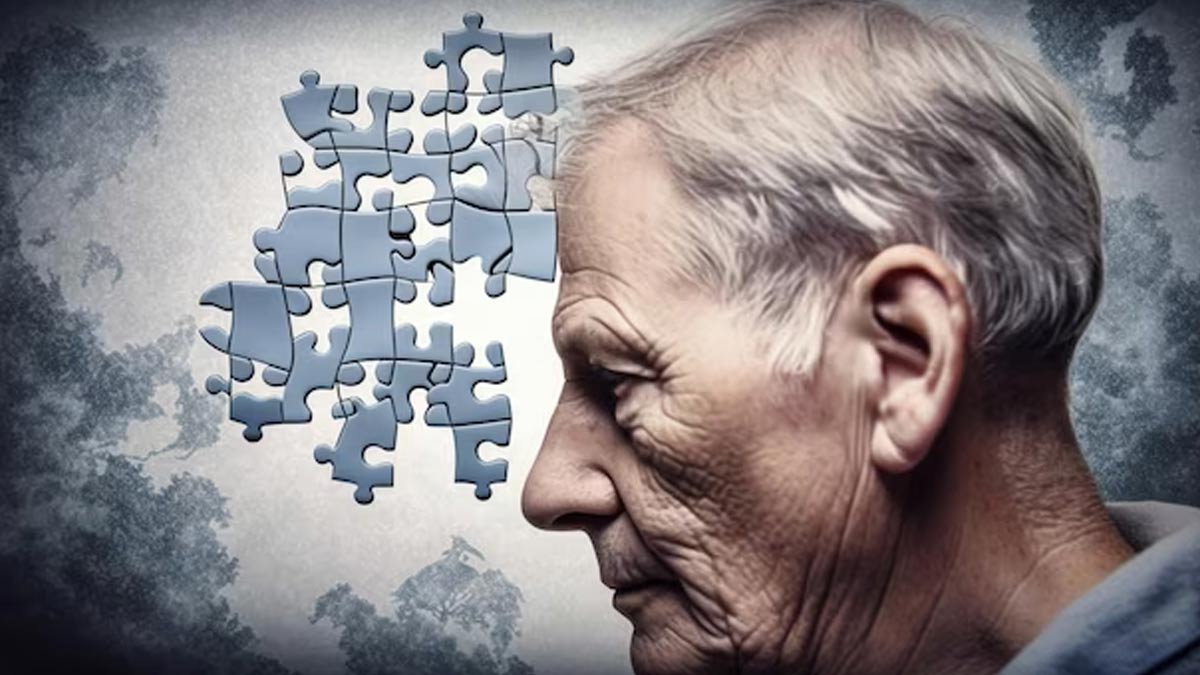
Being forgetful is not unusual, unless it means something serious like dementia. Dementia is a condition that refers to a group of symptoms indicating loss of cognitive functioning. From memory loss to affected thinking abilities, dementia is characterised by several symptoms. For a long time now, scientists and medical professionals have searched for answers to what causes dementia and other memory-related neurological diseases like Alzheimer's, but to no avail. While research is ongoing, we can only stay alert and watch out for early signs to receive or provide timely and effective treatment.
Table of Content:-
In an interaction with the OnlyMyHealth team, Dr Aparajita Chatterjee, Consultant Neurology, Fortis Hospital, Anandapur, sheds light on some of the initial symptoms of dementia and how it is different from Alzheimer’s.
Also Read: Is Headache A Sign Of Low Blood Pressure? Here's How You Can Tell
Dementia Is Not Synonymous To Alzheimer’s

As of now, there are more than 5.5 crore people who have dementia worldwide, suggests the World Health Organization (WHO), adding that every year, there are nearly one crore new cases.
“Dementia is a neurodegenerative condition that affects the brain, leading to a decline in cognitive function and memory loss,” said Dr Chatterjee, explaining further, “It is characterised by progressive impairment in thinking, reasoning, and memory affecting the routine activities of an individual.”
According to her, as the condition advances, individuals with dementia may struggle with communication, problem-solving, and even recognizing familiar faces.
Most people often confuse dementia with Alzheimer's disease. Dr Chatterjee said, “Alzheimer's disease is the most common cause of dementia whereas the term “dementia” is a general term characterised primarily by memory loss.” Alzheimer’s is a disease, whereas dementia is not and therefore, not all dementia incidences are a result of Alzheimer’s disease, she explained.
Early Symptoms Of Dementia To Watch Out For

According to the WHO, changes in mood and behaviour sometimes happen even before memory problems occur. Over time, symptoms may however become worse. These include:
Cognitive changes
- Memory loss
- Difficulty in communication
- Difficulty in performing complex tasks
- Unable to plan or organise
- Problems with orientation, such as getting lost
Psychological changes
- Changes in personality
- Inability to reason
- Inappropriate behaviour
- Paranoia
- Hallucination
Dr Chatterjee explained, “As it involves damage to nerve cells in the brain, dementia may affect people differently depending on which area of the brain is affected. But none of the signs must be ignored or taken lightly, as they might lead to rapid deterioration of mental health.”
Also Read: Multiple Sclerosis Can Cause Neurological Problems: Warning Signs To Note
What Causes Dementia?

As per the Alzheimer's Association, dementia is caused by damage to brain cells, which interferes with the ability of the brain cells to communicate with each other, hence, affecting one's thinking, behaviour and feelings. Dr Chatterjee lists down a few common causes that can lead to such damage and dementia symptoms:
- Degenerative (age-related)
- Genetic predisposition
- Head traumas and diffuse brain injury
- Subdural hematomas (Bleeding between the surface of the brain and the covering over the brain)
- Neuro-infections
- Immune disorders
- Nutritional deficiencies
- Hormonal disturbances (endocrine disorders)
- Down Syndrome
- Vascular risk factors
- Depression
- Diabetes
- Excessive smoking and alcoholism, drug abuse
- Primary brain tumours or metastasis or paraneoplastic manifestation
Who Is At Risk?
Dementia primarily affects the elderly, said Dr Chatterjee. According to the expert, gender may also affect a person’s chances of developing the disease. She said, “Globally, dementia is known to disproportionately affect women. Worldwide, women with dementia outnumber men by a ratio of 2:1. As per the WHO (2021), 65 percent of total deaths due to dementia are in women.” In fact, a study published in the Journal of the Alzheimer's Association found that women were at a higher risk for dementia among the oldest individuals compared to men.
Other risk factors of dementia include strong family history of dementia, Down’s Syndrome, and recurrent head trauma.
Bottomline
Dementia can be scary, more so because there is no certain way to prevent it. Britain's National Health Services (NHS) recommends eating a balanced diet, maintaining a healthy weight, and exercising regularly. The UK health body also discourages the consumption of alcohol and smoking and urges one to focus on one's mental well-being.
How we keep this article up to date:
We work with experts and keep a close eye on the latest in health and wellness. Whenever there is a new research or helpful information, we update our articles with accurate and useful advice.
Current Version